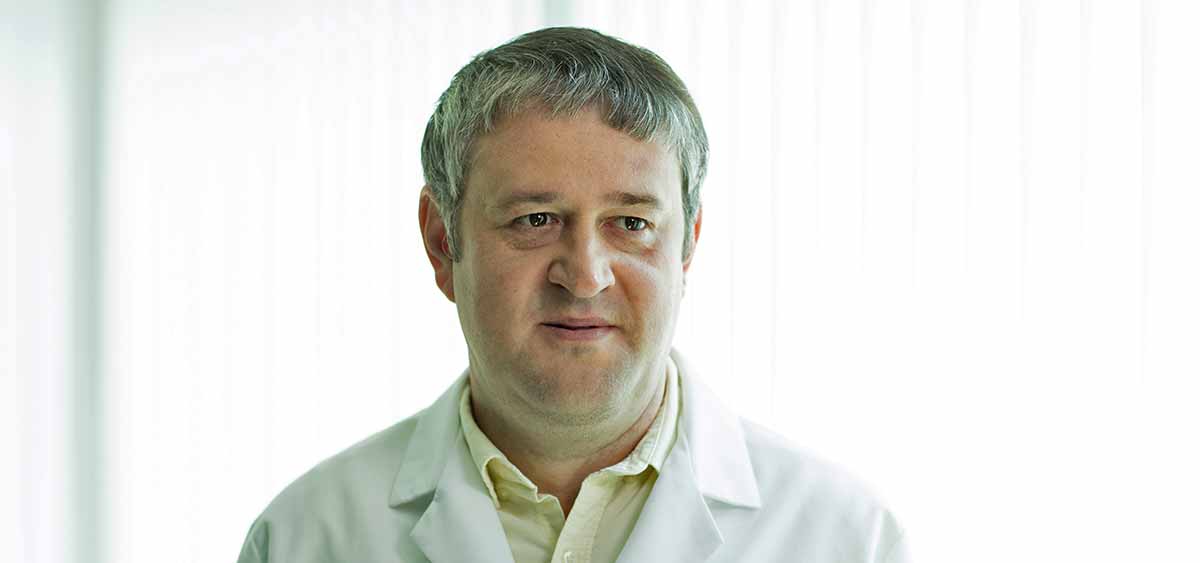
PHILADELPHIA (July 16, 2019) – Inflammation plays an instrumental role in tumor development, affecting the tumor microenvironment, mediating immune responses, and influencing tumor growth and spread.
However, with the current excitement around the growing field of cancer immunotherapy, the critical role of inflammation in cancer may be getting a bit lost, according to Sergei Grivennikov, PhD, assistant professor in the Cancer Prevention & Control Program at Fox Chase Cancer Center.
“The fact that inflammation can promote cancer is still an underappreciated issue,” Grivennikov said. “Although it is commonly considered as playing a role in a limited number of cancers, the fact is that inflammation is probably important for the majority of cancers.”
Grivennikov and Florian R. Greten, PhD, of Goethe University and Georg Speyer Haus, Frankfurt, Germany, recently wrote a comprehensive review of inflammation and cancer. The paper, “Inflammation and Cancer: Triggers, Mechanisms, and Consequences” was published in Immunity, and serves as an expansion and update to a frequently cited 2010 review published in Cell on the same topic.
In the last nine years, the field has become more aware of how inflammatory mechanisms, particularly broadly pro-tumorigenic inflammatory mechanisms, play an essential role at all stages of cancer development, Grivennikov said. Inflammation can influence whether cancer develops at all, how large it grows, and when it metastasizes. Additionally, inflammation can affect how and if a tumor responds to therapy.
“This was not yet fully appreciated in 2010, but is much more understood now,” Grivennikov said.
Indeed, today more is known about the molecular and cellular mechanisms of how inflammatory cells influence tumors.
“When you know how inflammation works, you can target different stages of these mechanisms and explore what happens when each stage is targeted with a new drug or therapy,” Grivennikov said.
In the paper, Grivennikov and Greten provide a thorough review of why the body has immune inflammatory responses that promote cancer.
“They are not there from evolution to promote cancer, but have several important functions in the body,” Grivennikov said. “Cancer promotion is an unfortunate but important byproduct of their normal function.”
Additionally, the review provides insights into how inflammation promotes cancer and these are important pieces of information to inform future clinical trials.
“Inflammation is a biomarker,” Grivennikov said. “For example, if a patient has a particular type of inflammation they may be predisposed to one or another type of cancer, the patient may respond positively or negatively to certain anti-cancer therapy, or they may have lower or higher risk for metastasis.”
With this increased understanding of how inflammation works and interacts with cancer cells, researchers can start to look for new drugs or combinations of drugs that alter inflammation pathways and start testing them in preclinical trials, with the ultimate goal of improving clinical practice.
This research was supported by NIH R01CA227629 and CA218133, Pew Scholar in Biomedical Sciences, AACR-Landon Innovator and US-Israel BSF Awards to Grivennikov, and NIH P30 CA-006927 to Fox Chase Cancer Center. Greten was supported by institutional funds from the Georg-Speyer-Haus; by the LOEWE Center for Frankfurt Cancer Institute, the Hessen State Ministry for Higher Education, Research and the Arts, and Deutsche Forschungsgemeinschaft.